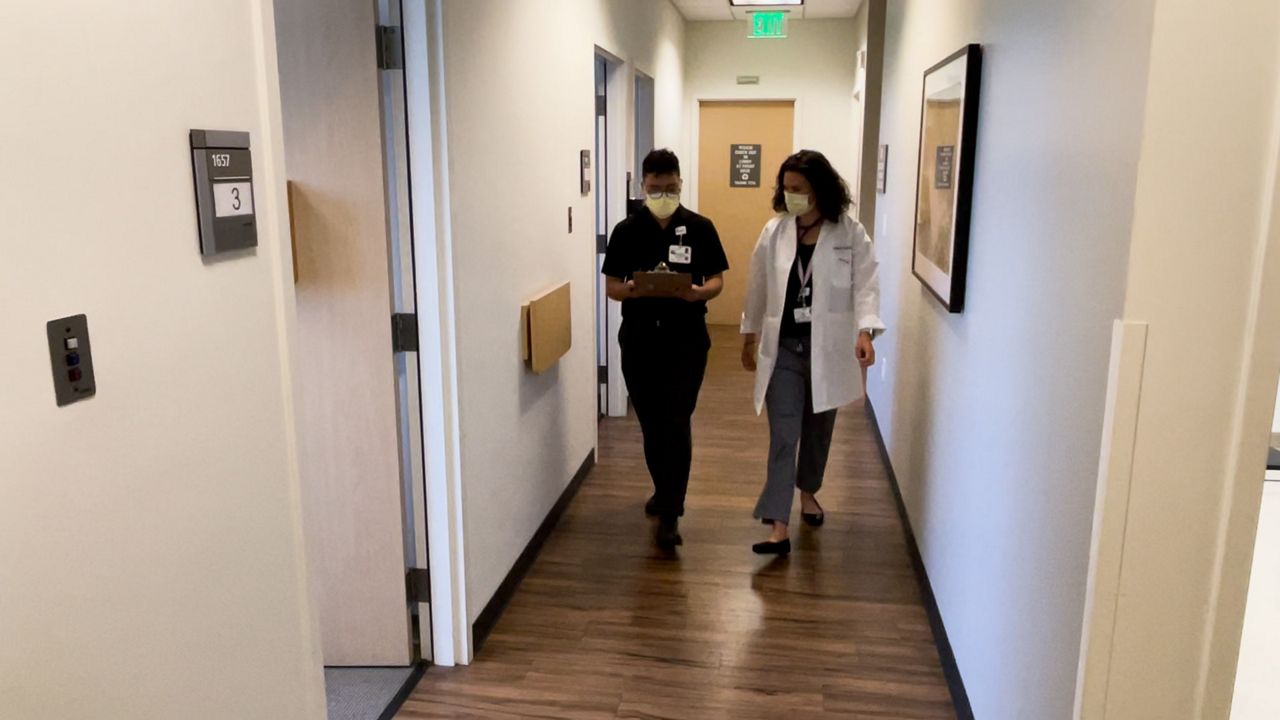LOS ANGELES — When Bridget Graves’ job brought her to Southern California from the East Coast, she needed to find a new team of doctors, a search that proved challenging
“Having to explain what it meant to be trans. Having to explain why I was taking hormone replacement therapy,” she said.
And at times, downright offensive.
What You Need To Know
- The Gender-Affirming Care Program includes physicians from several disciplines, such as family medicine, plastic surgery, gynecology and urology
- Specialists are also available in voice, occupational, and physical therapy
- “Many times, I’ll see folks who haven’t seen a primary care doctor in five or 10 years, haven’t gotten their cancer screenings because they don’t want to talk to someone who doesn’t really understand them,” said Dr. Laura Taylor
- She identifies as part of the queer community and says she has enjoyed watching the program grow since it launched about a year ago
“On the visit summary, it said problems, and it said sore throat and it said transgender. I called the doctor’s office. I was furious, and I called and I said, ‘This is not a problem. This is just who I am,’” Graves said.
But all those experiences eventually led her to Keck Medicine of USC’s Gender-Affirming Care Program, and she couldn’t be more grateful.
“I had never met with a primary care physician who had a trans pride flag on their ID badge, who was ahead of me in my understanding of what kinds of treatment was available and what my options were,” Graves explained.
The Gender-Affirming Care Program includes physicians from several disciplines, such as family medicine, plastic surgery, gynecology and urology. Specialists are also available in voice, occupational, and physical therapy.
“Many times, I’ll see folks who haven’t seen a primary care doctor in five or 10 years, haven’t gotten their cancer screenings because they don’t want to talk to someone who doesn’t really understand them,” said Dr. Laura Taylor, the program’s Medical Director.
She identifies as part of the queer community and says she has enjoyed watching the program grow since it launched about a year ago.

She sees about 15 to 20 new patients per month.
“It’s wonderful to be able to help folks really live authentically, be their true selves, and provide a service that historically, most people have not been able to find before,” Dr. Taylor said.
“When I saw that this role was available, I quickly applied,” said Matthew Hernandez, who transitioned about nine years ago.
He is now a Patient Navigator for the program. It’s something he wishes he had during his own transition. He’s also a first-generation college graduate and undocumented.
“I have overcome a lot of barriers that help me resonate and deeply understand the needs of our trans and gender non-conforming patients,” Hernandez said.
He helps patients understand their insurance plans, benefits and schedules appointments, but perhaps most importantly, he’s able to make them feel comfortable.
“Their reactions are usually very emotional or very like, ‘Whoa! You’re trans too?! You understand me,’” he said.
Because when patients feel understood, experience indicates they are more likely to open up to their health care providers.
“I’d just like to think that there’s going to be something like this available in every care setting,” Graves said. “It makes me ask questions. It makes me believe what I’m hearing. It makes me trust the physician more.”
Information that could one day be lifesaving.
Let Inside the Issues know your thoughts and watch Monday through Friday at 8 and 11 p.m. on Spectrum News 1.



